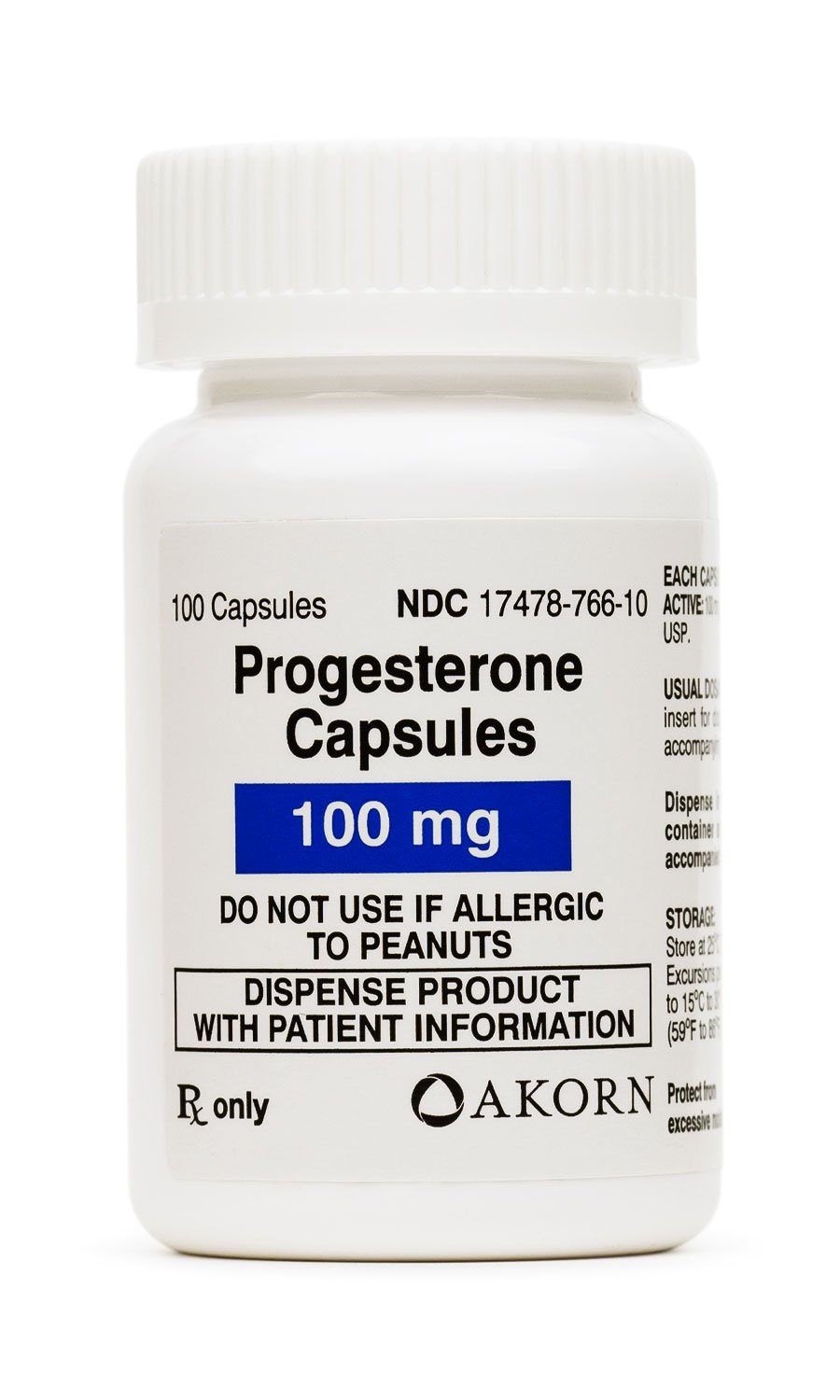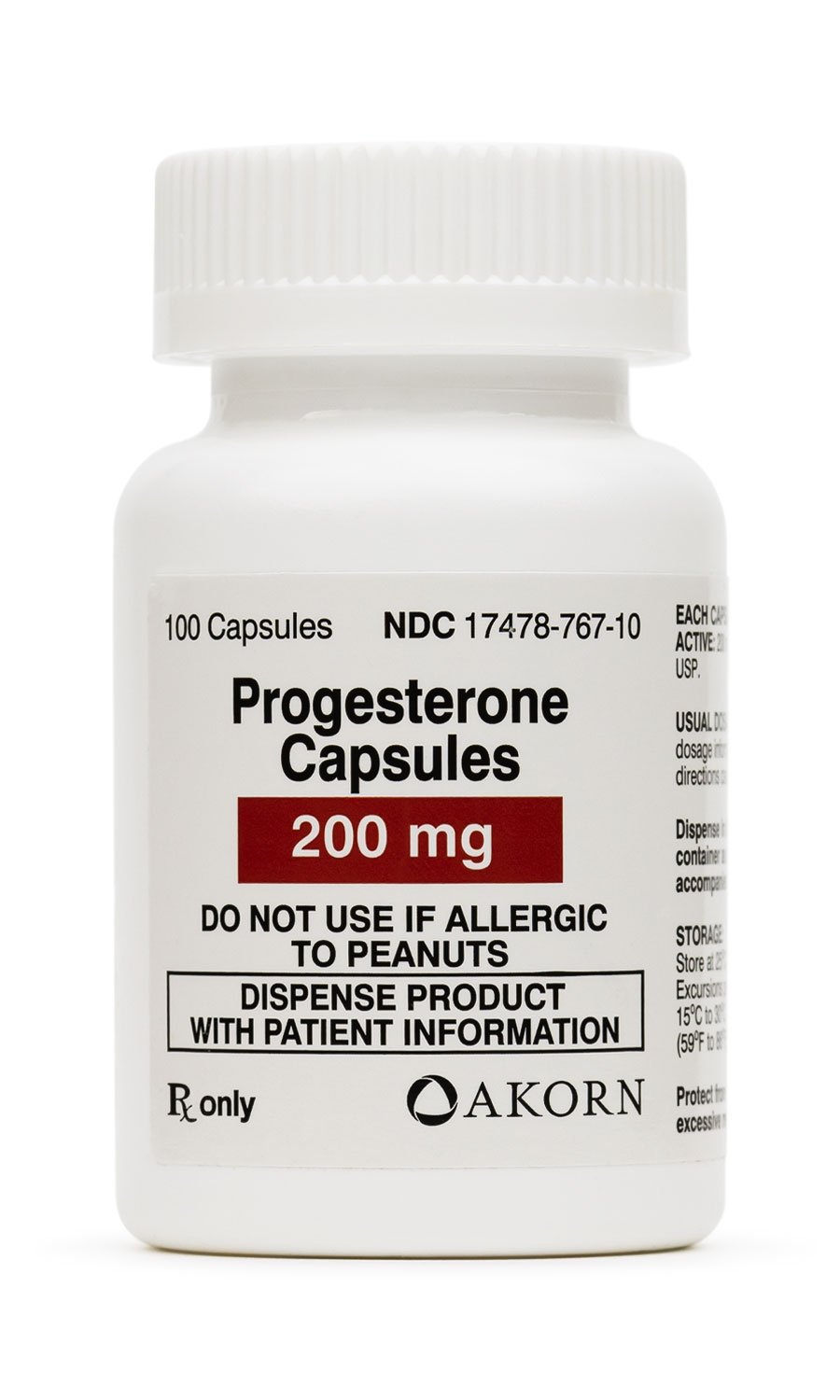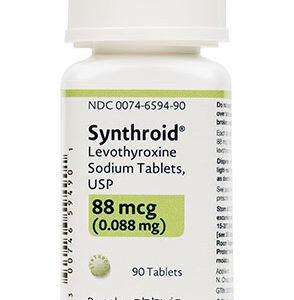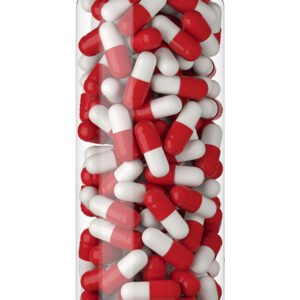The most common adverse reactions occurring during therapy with progesterone include menstrual irregularity, menstrual flow changes, and dysmenorrhea or amenorrhea. These effects may be indistinguishable from pregnancy. Progesterone also causes spotting, breakthrough bleeding, weight gain, nausea, vomiting, breast tenderness or mastalgia, and mild headache. These adverse effects occur less frequently with progestin-only OCs compared to combination OCs. Other reported adverse reactions during therapy include melasma, chloasma, libido decrease, libido increase, breast discharge, cervicitis, galactorrhea, hirsutism, leukorrhea, unusual weakness, and vaginitis. Post-marketing experiences with oral progesterone include endometrial carcinoma, hypospadia, intra-uterine death, menorrhagia, menstrual disorder, metorrhagia, ovarian cyst, and spontaneous fetal abortion. Additional adverse reactions associated with the intravaginal gel include breast enlargement, dyspareunia, nocturia, perineal pain, dysmenorrhea, premenstrual tension, vaginal dryness, and vaginal discharge. Adverse reactions associated with vaginal inserts include vaginal irritation, vaginal itching, vaginal burning, and vaginal pain/discomfort.
Fluid retention and/or edema may occur in patients receiving progesterone. Patients with heart failure and/or renal disease may experience an exacerbation of their condition. Post-marketing reports of adverse reactions with oral progesterone include facial edema, circulatory collapse, congenital heart disease, hypertension, hypotension, and sinus tachycardia.
Patients receiving progesterone or other hormonal contraceptives can experience emotional lability. This adverse effect may be manifest as mental depression, anxiety, frustration, irritability, anger, or other emotional outbursts. Additional CNS and psychiatric adverse events reported include insomnia, aggression, forgetfulness, migraine, tremor, headache, dizziness, drowsiness, and fatigue. Post-marketing experience reports include convulsions, depersonalization, disorientation, dysarthria, loss of consciousness, paresthesias, sedation, stupor, difficulty walking, syncope, transient ischemic attack, suicidal ideation, and feeling drunk.
The insertion of an intrauterine device (IUD) containing progesterone may result in infection. The risk of infection is greatest within the first 20 days after insertion. Untreated infection may lead to pelvic inflammatory disease, which requires removal of the system and appropriate antibiotic treatment. The patient’s partner may also require antibiotic treatment. Uterine pain may follow initial insertion of the progesterone IUD and usually responds to analgesic therapy. Pain should not persist for more than a few hours after IUD insertion.
Thromboembolic disease is more common in hormonal contraceptive users than in non-users. Previously, thromboembolic disease such as deep venous thrombosis (DVT), appeared to be more related to estrogen therapy than to progestin therapy, however, there is some evidence that different types of progestins are associated with differing rates of venous thromboembolism. At usual doses, women receiving third generation progestins (e.g., desogestrel or gestodene) appear to have an increased risk of venous thromboembolic disease compared to women receiving previous generation progestins. The risk is even greater in women with genetic predisposition or family history for venous thromboembolic disease. Thromboembolism or thrombus formation has also been associated with high doses of progestins. Other rare adverse reactions that may occur during progestin therapy may include pulmonary embolism, retinal thrombosis, hepatoma, hepatitis (and elevated hepatic enzymes), cholestasis, jaundice, and hyperglycemia.
Intramuscular administration of progesterone often causes an injection site reaction. Adverse local reactions include erythema, irritation, pain, and swelling at the site of injection. More general dermatological events have been reported and include alopecia, pruritus, urticaria, acne vulgaris, rash (unspecified), seborrhea, skin discoloration, fever, and hot flashes. Anaphylactoid reactions and hypersensitivity, including dyspnea, rhinitis, asthma, hyperventilation, and throat tightness have been reported.
GI adverse reactions reported with progesterone use include abdominal pain, bloating, nausea, vomiting, dyspepsia, dysphagia, eructation, flatulence, gastritis, diarrhea, constipation, anorexia, appetite stimulation, and weight loss. Acute pancreatitis and swollen tongue were reported post-marketing.
Adverse reactions reported with progesterone use include abnormal gait, arthralgia, choking (with oral formulations), cleft lip, cleft palate, tinnitus, vertigo, cystitis, dysuria, increased urinary frequency, leg pain, musculoskeletal pain, flu-like symptoms, xerophthalmia, benign cyst, purpura, anemia, infection, pharyngitis, sinusitis, urinary tract infection, and conjunctivitis.








Reviews
There are no reviews yet.